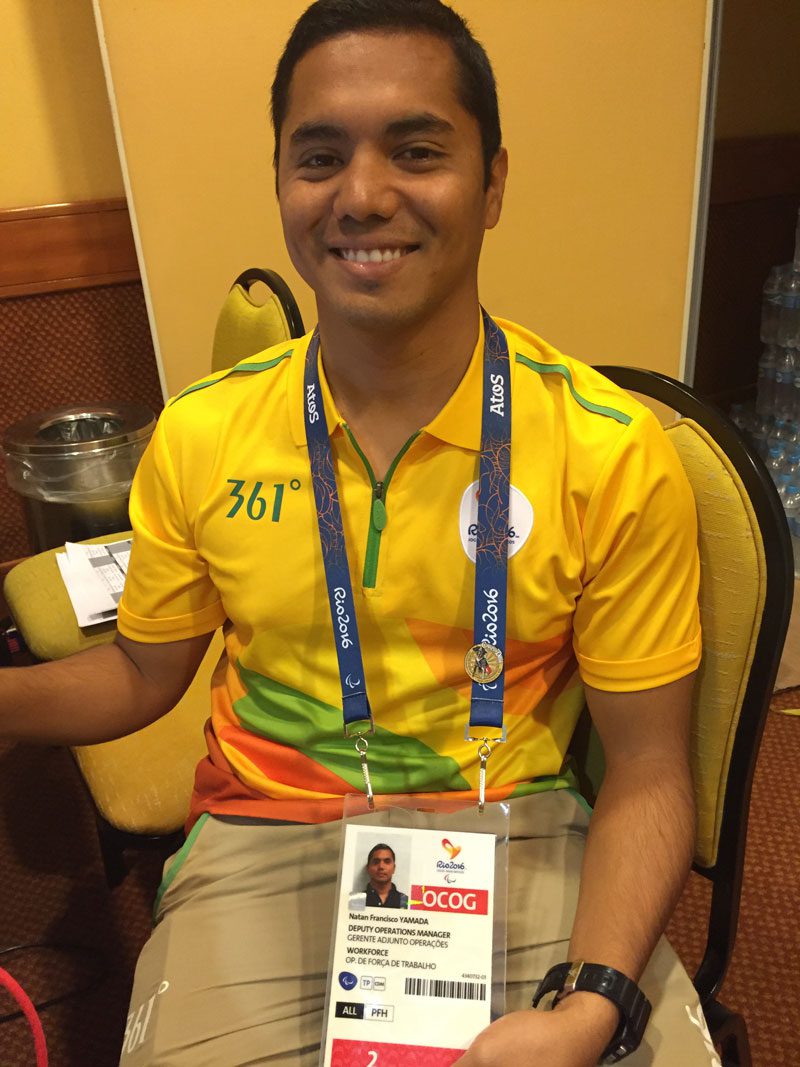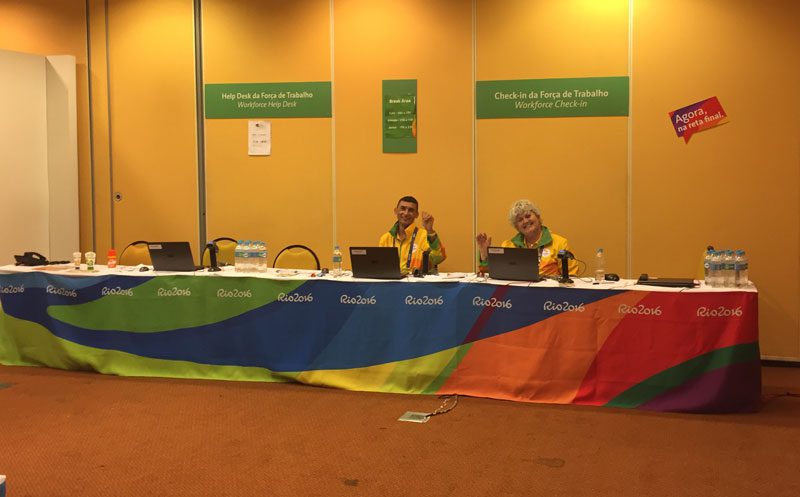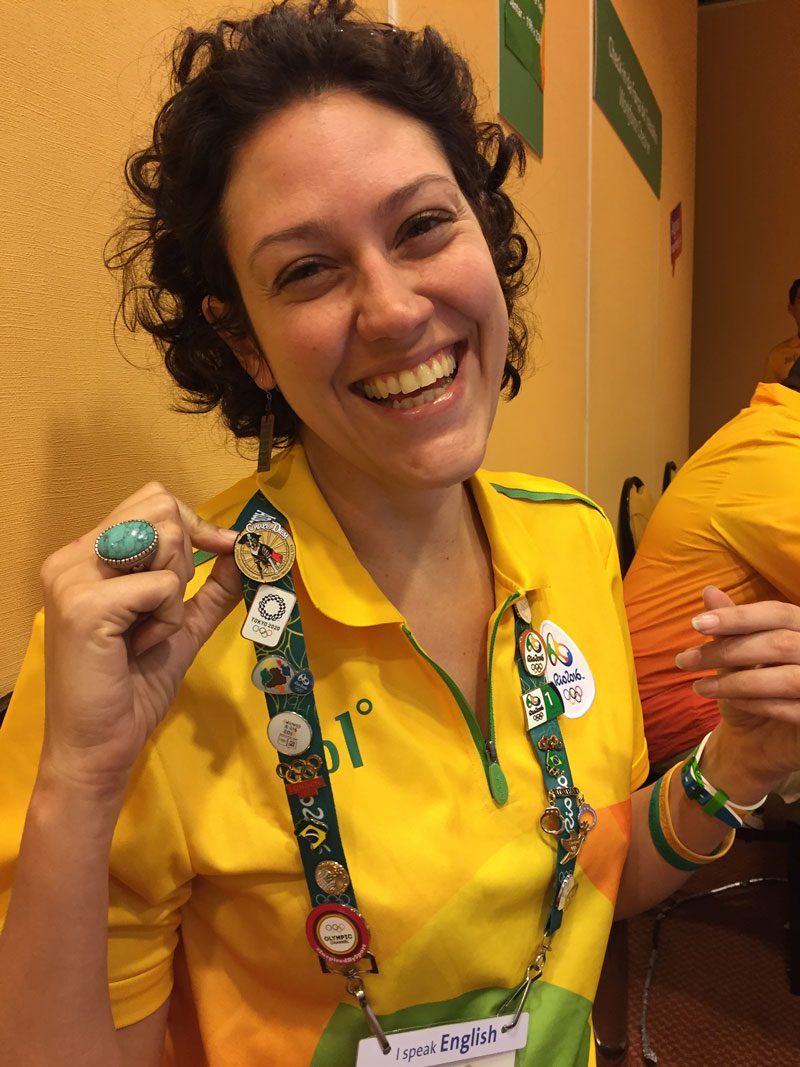Today was my first day at work and I was trained by Luciana. She was the first to get a pirate dog pin and she loved it! My job was checking in employees and volunteers at the Paralympic family hotel to distribute meal tickets, water and to help keep the staff motivated.
When I heard “Paralympic Family Hotel”, I thought this was where the moms, dads and siblings of the athletes stay. I found out that the “Paralympic Family” means all of the world delegations of the organizing committees. It is comprised of the International Paralympic Committee “IPC” and the National Paralympic Committees “NPC” and the International Federations “IF” for each sport. This is the “business/organizing” side of the Paralympics, and they all stay in the same hotel. They have a variety of privileges depending on their credentials. The paid employees and volunteers in my area are taking care of this group of organizers.
The check-in area is in the lower floor of the hotel. I work primarily with local employees and volunteers, and they all primarily speak Portuguese. One of the managers, Nathan, thought I would be better suited to a different area where my English would be more of a benefit to the clients. Nathan was working with another group to see if they could use my help. Although I enjoyed working with everyone, and really working on my Portuguese, I didn’t get to meet people from all over the world. I was hoping for the change so I could get a better sense of this amazing event.

Meet Nathan. He is the manager that tried, and succeeded in transferring me to a department he thought would be more interesting for me. He is also helping to get Mark assigned to a roster.
Here’s a quick lesson taken out of the Paralympic Family Guide.
The History of the Paralympic Movement and the Paralympic Games
The Paralympic Games are the most prestigious international sports competition for athletes with an impairment. They help
break down stereotypes and promote change in the way that society views people with an impairment.
The History of the Paralympic Games
The origins of the Paralympic Movement are associated with the name of the distinguished neurosurgeon Ludwig Guttmann,
who actively used sports as a means of treatment for patients with motor system injuries. In 1948 he organized the first sports
competitions for people with impairment at the Stoke Mandeville Hospital in Aylesbury, United Kingdom. Participants in the
competitions included veterans who had been injured during the Second World War. These Games began to be known as the Stoke Mandeville Games, named after the village in which they were held. They gained international status as early as 1952, when Dutch military personnel took part in the competitions. The IX Annual International Stoke Mandeville Games were held
in Rome in 1960, a few weeks after the XVII Olympic Games. They are considered to be the first Paralympic Games.
The Term “Paralympic“
The name Paralympic Games originally referred to the term “paraplegia“, as the first regular competitions were among people
with spinal cord injuries. When athletes with different impairments began participating in the Games, the term “Paralympic Games“ took on the meaning of “alongside the Olympics“, from the Greek preposition para (“beside“ or “alongside“). The new interpretation was meant to declare the competition among people with an impairment to be equal to the Olympic Games.
The International Paralympic Committee The first General Assembly of International Sports Organizations for People with Disabilities was a pivotal event in the development of the Paralympic Movement. On 21 September 1989, in Düsseldorf, it founded the International Paralympic Committee, an international non-profit organization that promotes the Paralympic Movement around the world. The IPC’s goal is “to enable Paralympic athletes to achieve sporting excellence and inspire and excite the world“.



